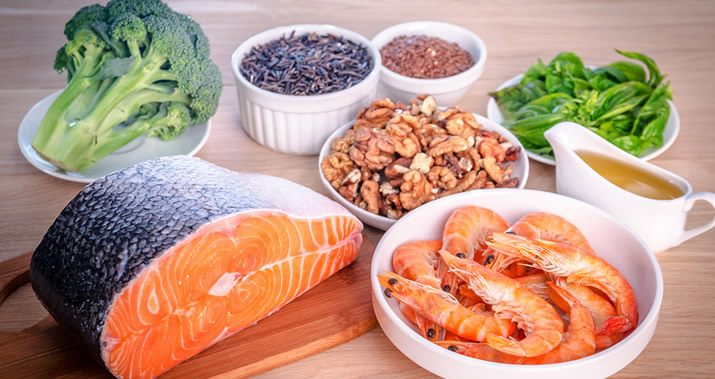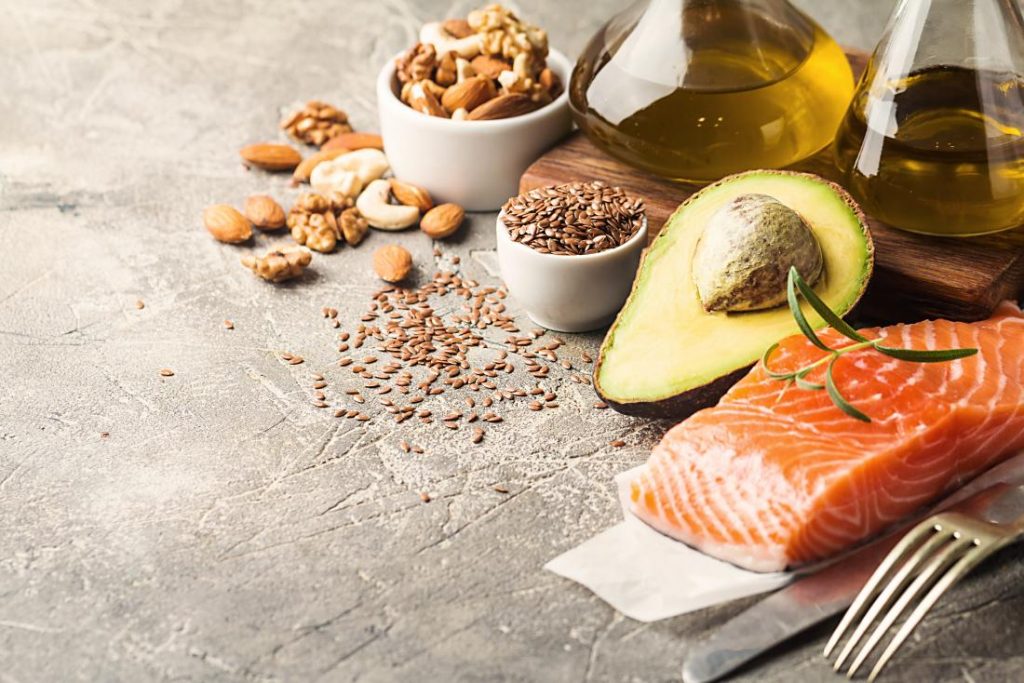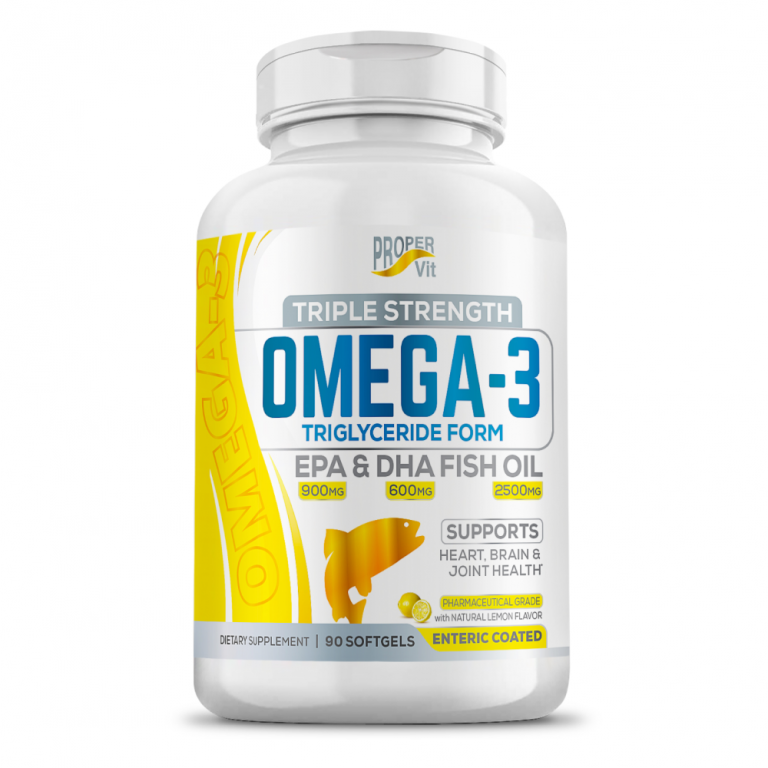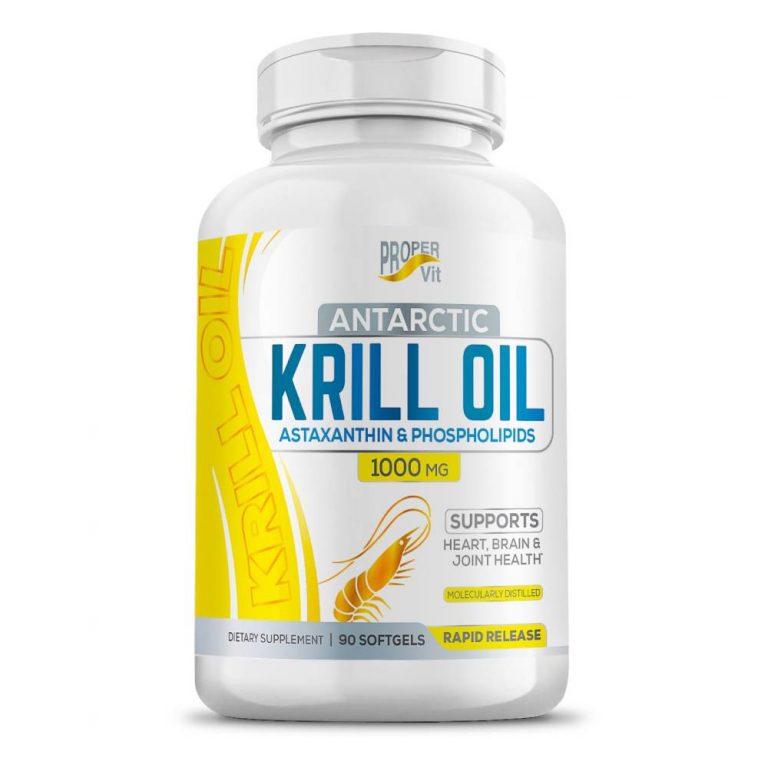Essential Fatty Acids
Essential Fatty Acids: What Makes These Healthy Fats So Essential?
For decades, dietary fat has been plagued with a bad reputation as reduced-fat products hit the shelves and low-fat diets took center stage. However, dietary fat as well as essential fatty acids are two critical components of good health.
Fat plays a role in just about every aspect of health, right down to the very cells that make up your body. Fortunately, it’s easy to get the fat that you need, and your body is even able to create its own fatty acids to prevent deficiency.
There are certain types of fatty acids, however, that you must get through your diet as your body is not able to produce them. Known as essential fatty acids, getting enough of these healthy fats in your diet is crucial to maintaining optimal heath and preventing deficiency.



What Are Essential Fatty Acids?
You’ve probably heard quite a bit about saturated fatty acids and unsaturated fatty acids as well as their effects on health. But what are fatty acids exactly, and why do we need them?
There are many types of fatty acids, all varying by the number of carbon atoms and hydrogen bonds that they contain. Your body needs these different types of fatty acids as they provide energy, make up the cell membranes, help absorb certain vitamins and minerals, and even produce important hormones.
Your body is able to make most of the fatty acids it needs from other fats. However, there are two types of fatty acids that your body is unable to synthesize: linoleic acid (omega-6 fatty acid) and alpha-linolenic acid (omega-3 fatty acid).
Alpha-linolenic acid is converted in the body to the active forms of omega-3 fatty acids, docosahexaenoic acid (DHA) and eicosapentaenoic acid (EPA).
Linoleic acid and alpha-linolenic acid are considered essential fatty acids because you need to obtain them through your diet since your body can’t create them.


Essential Fatty Acids
Why Do You Need Essential Fatty Acids?
Essential fatty acids affect many aspects of health. Functions of essential fatty acids include improving immunity, cell signaling, mood and brain health, plus decreasing inflammation.
Some research shows that increasing your intake of essential fatty acids could enhance mental and physical performance, help treat some diseases, promote mental health, and improve body composition. (1)
An essential fatty acids deficiency can lead to symptoms like:
- Dry skin
- Dandruff
- Scaly skin
- Brittle fingernails
- Dry mouth
- Dull, patchy skin
- Excessive thirst
- Cracked fingertips or heels
Benefits of Essential Fatty Acids
1
Promote Heart Health
Essential fatty acids are well-known for their role in preventing heart disease by reducing risk factors and keeping your heart healthy and strong. In fact, a higher intake of essential fatty acids has been associated with a reduced risk of heart disease. (2, 3)
Omega-3, in particular, has been shown to reduce triglycerides, blood pressure and the buildup of plaque in the arteries. (4, 5, 6)
Studies show that omega-6 fatty acids may also lower some heart disease risk factors, such as blood pressure, total cholesterol and bad LDL cholesterol. (7, 8)
2
Protect Your Brain
Some promising research has found a link between essential fatty acid intake and brain health, showing that it may help improve cognition and could even prevent certain neurological disorders.
Several studies have found that omega-3 fatty acid consumption is tied to a decreased risk of cognitive decline and Alzheimer’s disease. (9, 10) One study published in the American Journal of Preventative Medicine even found that a higher intake of fish, which is high in omega-3 fatty acids, is associated with more gray matter in the brain. This is a type of brain tissue involved in memory formation, sensory perception and decision making.
3
Fight Depression
In addition to keeping your brain healthy, essential fatty acids can also positively affect your mental health as well. One analysis of clinical trials looked at 19 studies on the effects of omega-3 fatty acids on depression and showed that supplementation with omega-3 fatty acids was effective at treating symptoms of depression. (12)
Omega-3 fatty acids have also been shown to aid in the treatment of other mental health issues like bipolar disorder and anxiety. (13, 14)
4
Relieve Inflammation
Inflammation is a normal immune response designed to help protect your body against infection. Chronic inflammation, however, has been linked to a slew of problems like heart disease, cancer and autoimmune problems. (15)
Research shows that omega-3 fatty acids may help reduce harmful inflammation. One study in the New England Journal of Medicine found that taking omega-3 fatty acids for six weeks helped decrease the levels of several markers of inflammation in the blood. (16)
Another study conducted at the University of Pittsburgh Medical Center compared the effects of ibuprofen, an anti-inflammatory drug, with omega-3 fatty acid supplementation and showed that they were comparable in their ability to reduce pain and inflammation. (17)
Essential fatty acids may be especially helpful in the treatment of conditions that are caused by inflammation like asthma, rheumatoid arthritis and inflammatory bowel disease.
5
Reduce Joint Pain
Arthritis is a joint disease that can cause pain, stiffness and swelling. It can affect anyone regardless of age or gender, but it’s most likely to affect older adults. In fact, nearly 50 percent of U.S. adults over 65 have been told they have a form of arthritis. (18)
Essential fatty acids have been shown to aid in the treatment of arthritis by alleviating joint pain.
In one study, 40 patients with rheumatoid arthritis received either evening primrose oil or a placebo for six months. Evening primrose oil contains gamma-linolenic acid, a fatty acid that is made from linoleic acid in the body. Compared to the placebo group, those who received evening primrose oil had significant reductions in pain, morning stiffness and joint tenderness. (19)
In another study conducted by the Arthritis and Metabolic Bone Disease Research Unit in Belgium, participants with rheumatoid arthritis were supplemented with omega-3 fatty acids for one year, which was found to reduce both joint pain and use of anti-arthritis medication. (20)
Essential Fatty Acid Sources
You can easily meet your essential fatty acid needs through the diet by including a few servings of healthy oils, nuts and seeds into your day.
Some common sources of linoleic acid include:
- Flaxseed and flaxseed oil
- Soybean oil
- Sunflower oil
- Safflower oil
- Hempseed and hempseed oil
- Pumpkin seeds
A few good sources of alpha-linolenic acid include:
- Perilla oil
- Flaxseed and flaxseed oil
- Chia seeds
- Walnuts
- Brussels sprouts
Keep in mind that alpha-linolenic acid is converted into DHA and EPA, the active forms of omega-3 fatty acids. You can also include a few servings of fatty fish into your diet each week or supplement with fish oil to increase your omega-3 fatty acid intake with DHA and EPA.
Essential Fatty Acids vs. Non-Essential
Alpha-linolenic acid and linoleic acid are just two of the many types of fatty acids that your body needs. However, these two stand out because they are the only fatty acids that your body can’t produce on its own using other fats or materials.
DHA and EPA, for example, are just as important and carry the same health benefits as alpha-linolenic acid. But because your body can convert alpha-linolenic acid into DHA and EPA, they are considered non-essential fatty acids.
That’s why it’s incredibly important to include plenty of essential fatty acids in your diet, as this is the only way to make sure that your needs are being met.
Healthy Fat vs. Unhealthy Fat
Unfortunately, fat has gotten a bad reputation over the years. Thanks to its association with heart disease and weight gain, many people tend to steer clear of fat altogether.
There should be a distinction made between healthy fats and unhealthy fats, however.
For example, trans fats, which are frequently found in processed foods and baked goods, have been associated with an increased risk of heart disease. (21)
Meanwhile, healthy fats like monounsaturated fatty acids are actually protective against heart disease and metabolic syndrome, which is a group of conditions that raise the risk of heart disease, stroke and diabetes. (22)
In addition to essential fatty acids, other healthy sources of fat include:
- Avocados
- Fatty fish
- Nuts
- Seeds
- Coconut oil
- Olive oil
- Butter
- Ghee
Essential Fatty Acid Uses
Looking to up your essential fatty acid intake and reap the health benefits of these nutritious fats? No problem! Essential fatty acids are plentiful in oils, nuts and seeds, so it’s easy to incorporate them into your diet.
Try swapping the oils in your salad dressings or sauces with flaxseed oil, which contains a hearty dose of both alpha-linolenic and linoleic acid. Keep in mind that these oils should not be used in high-heat cooking because they have a low smoke point and can easily oxidize and form harmful compounds when exposed to heat.
You can also try sprinkling chia seeds, pumpkin seeds or hemp seeds onto salads, yogurts or smoothies to give your essential fatty acid intake a quick boost.
Alternatively, try including some essential fatty acid-rich foods in your entrees, side dishes or snacks by experimenting with some new recipes.
Precautions
While both alpha-linolenic acid and linoleic acid are important, the ratio of omega-6 to omega-3 fatty acids should also be considered.
It’s estimated that the omega-6 to omega-3 ratio in the modern diet is 20:1 when it should ideally be closer to 2:1. This kind of imbalance can lead to chronic inflammation, which is at the root of conditions like heart disease, obesity, diabetes and even cancer. (24)Unfortunately, omega-6 fatty acids are frequently found in unhealthy sources like processed foods, which have become an all-too-common staple in the average diet.
Instead, enjoy a diet rich in whole foods with healthy fats and essential fatty acids to keep your omega-6 to omega-3 ratio in balance and ward off inflammation.
If you have a disorder that affects absorption, you should consult with your doctor to ensure that your essential fatty acid and other micronutrient needs are being met. For these individuals, essential fatty acids can also be administered through supplementation, topical medications or infusion directly into the blood.
History of Essential Fatty Acids
The importance of dietary fat wasn’t fully realized until the early 1900s. Up to that point, fat was simply viewed as a way to bump up caloric intake in the diet rather than an important nutrient.
In 1929 and 1930, husband and wife George and Mildred Burr published two papers that shed light on the importance of fats in the diet. They performed a series of tests in which rats were fed special diets and found that a lack of fatty acids led to deficiency and even death. This made them wonder: What are fatty acids, and how do they relate to health?
It was because of their discoveries that we learned about the critical role of dietary fat in overall health. The Burrs coined the term “essential fatty acid” and discovered the importance of linoleic acid in particular. They noted that a lack of linoleic acid led to scaly skin and water loss in the rats.
Interestingly enough, linoleic acid was considered the only essential fatty acid up until recently. In fact, up until the mid-1990s, linoleic acid was the only type of fatty acid that was required to be added to infant formula. (23)
Today, researchers continue to learn more about the importance of dietary fat and essential fatty acids as well as the role that they play in promoting optimal health.
Final Thoughts on Essential Fatty Acids
Essential fatty acids are incredibly important to health and come with a variety of health benefits. Meeting your essential fatty acid needs can keep your brain and heart healthy, fight depression and even reduce inflammation.
These fatty acids stand out from other types of fat because they can’t be produced in the body and need to be obtained through essential fatty acid foods such as nuts, seeds and oils.
Of course, it’s just as important to consider the ratio of omega-6 to omega-3 fatty acids.
Some of the best sources of essential fatty acids include:
- Avocados
- Fatty fish
- Nuts
- Seeds
- Coconut oil
- Olive oil
- Butter
- Ghee
- Flaxseed and flaxseed oil
- Soybean oil
- Sunflower oil
- Safflower oil
- Hempseed and hempseed oil
- Pumpkin seeds
- Chia seeds
- Walnuts
- Brussels sprouts
The top five benefits of essential fatty acids include:
- Promoting heart health
- Protecting your brain
- Fighting depression
- Relieving inflammation
- Reducing joint pain
Make sure you’re getting your essential fatty acids from whole food sources and include them as part of an overall well-balanced and nutritious diet to achieve the best results.

